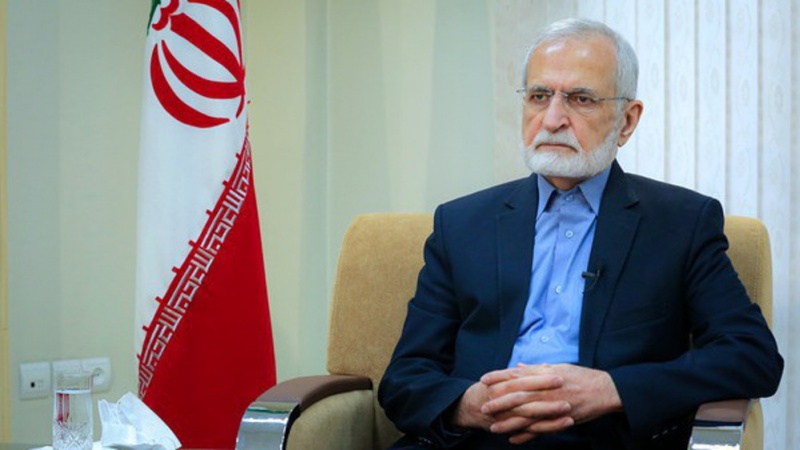Doha has long called for talks between Gulf Arab nations and Tehran.
Qatar had proposed a regional dialogue with Iran that was welcomed by the Islamic Republic, the head of Tehran’s Strategic Foreign Relations Council Seyed Kamal Kharrazi told Al Jazeera on Sunday.
Kharrazi, who served as Iran’s former foreign minister, failed to disclose further details on the Qatari proposal, however he reiterated Tehran’s support for a regional dialogue.
The Iranian official said his country would be ready for talks with the participation of countries including Qatar, Saudi Arabia, Egypt and Turkey.
Qatar has long called for talks between Gulf Arab nations and Iran and previously offered to mediate between Tehran and Riyadh.
Speaking to Bloomberg last year, Qatar’s Foreign Minister Sheikh Mohammed bin Abdulrahman Al Thani “urged” regional players to engage in dialogue with Iran, adding that it was the “right time” for Doha to broker the negotiations.
The statements were made days after the signing of the historic Al-Ula Declaration, which ended the region’s worst diplomatic rift. The dispute was triggered when Saudi Arabia, the UAE, Bahrain and Egypt imposed an illegal air, land and sea blockade on Qatar.
The quartet claimed the blockade was in response to Qatar’s alleged support for terrorism, though Doha repeatedly and vehemently rejected those claims as baseless.
In order to lift the blockade, the quartet demanded that Qatar severs its ties with Iran along with 12 other demands – all which have been rejected by the Gulf state.
Qatar is currently playing a major role in the region by holding indirect talks between the US and Iran in an effort to restore the 2015 nuclear accord, technically known as the Joint Comprehensive Plan of Action (JCPOA).
The talks started in Vienna last year though little progress was made between parties involved. This led to efforts being redirected to Doha in a bid to overcome a stalemate.
Commenting on the talks, Kharrazi said it is difficult to directly negotiate with Washington in a climate of mistrust and said the US was failing to provide guarantees to preserve a potential new accord.
Speaking to the Qatar-based network, Kharrazi noted Iran is not planning on developing a nuclear weapon though warned his country has the technical capabilities to manufacture one.
Rapprochement with Iran
More than a year following the end of the GCC crisis, there appears to be a shift in some of the quartet’s stance with Iran.
Last year, Saudi Arabia and Iran held four rounds of talks as well as a fifth in April this year. Meanwhile, the Emirati president’s diplomatic adviser Anwar Gargash said on Friday that his country is planning on sending an envoy to Tehran.
Gargash added that the UAE would not take part in an “axis” against Tehran, referencing recent reports ahead of US President Joe Biden’s regional visit of an alleged military alliance to confront Iran in the Middle East.
Under the alleged bloc, various Arab nations and Israel, the only nuclear power in the region, would help the other members deter perceived threats by Iran, according to reports. However, officials from the GCC have denied such moves.
On Saturday, Saudi Arabia’s Foreign Minister Prince Faisal bin Farhan told the press that a potential formation of a Middle East alliance was not raised during the joint GCC+3 Summit with the US in Jeddah.
Commenting on Israel’s continuous threats to the Islamic Republic, the Iranian official said that the Zionist state is in a “weak phase” and warned targeting Tehran’s security from neighbouring countries will be met with a response.
Kharrazi welcomed Saudi Arabia’s positive statements on steps to start dialogue with Iran, noting that both countries have a regional importance and resolving their differences will transform the region.







